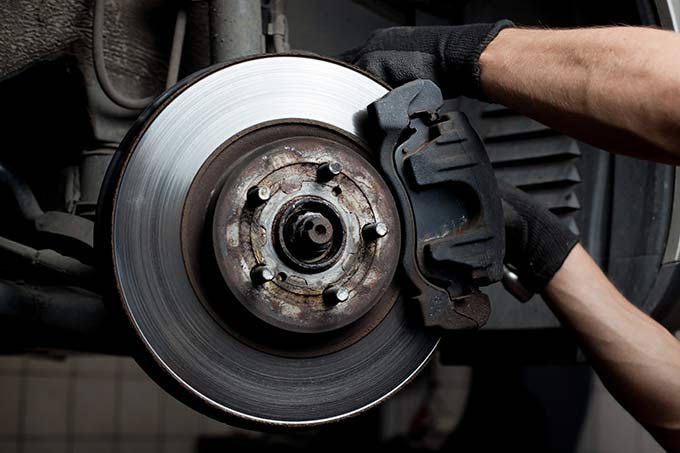Brake Failure in Car Accidents Prevention and Legal Considerations
Whether you've been injured in an accident, are dealing with a personal injury claim, or facing another legal issue, Mendez & Sanchez APC is here to fight for you. Contact us today for a free, no-obligation consultation.
Call Us Now
Driving a car is a responsibility that comes with risks. Although most drivers take necessary precautions, accidents can still happen. Brake failure is one of the most common causes of car accidents, and it can happen to anyone, regardless of their driving skills or experience. When the brakes fail, a driver can lose control of their vehicle, leading to a collision with other cars, pedestrians, or property.
What is Brake Failure?
Brake failure occurs when the brakes on a vehicle do not function as intended, making it difficult or impossible for the driver to stop the car. There are several causes of brake failure, including mechanical failure, hydraulic failure, and driver error. Brake failure is a serious issue that can lead to devastating car accidents. When the braking system fails to function properly, drivers lose the ability to slow down or stop their vehicles efficiently, putting themselves and others at risk. This article will delve into the causes of brake failure, the symptoms to watch out for, common types of brake failure accidents, and preventive measures to avoid such accidents.
Understanding Brake Failure
Brakes are a crucial component of any vehicle, responsible for decelerating and stopping the vehicle when needed. Brake failure occurs when the braking system malfunctions, resulting in the loss of braking power. This can happen due to various reasons, such as mechanical failure, hydraulic problems, worn-out brake pads, or insufficient brake fluid.
Common Types of Brake Failure Accidents
- Rear-End Collisions: Brake failure can lead to rear-end collisions when a driver fails to stop in time due to the lack of braking power. These accidents can result in significant damage to both vehicles and cause injuries to drivers and passengers.
- Intersection Accidents: Brake failure at intersections can be catastrophic, especially when drivers are unable to stop at traffic lights or yield signs. This can result in high-speed collisions with other vehicles crossing the intersection.
- Downhill Accidents: Brake failure on steep downhill roads can be extremely dangerous. The inability to slow down or stop can cause the vehicle to gain excessive speed, leading to loss of control and potential rollover accidents.

Common Causes of Brake Failure
Brake failure can stem from various factors, and understanding these causes is vital for prevention. Mechanical failure, such as a faulty master cylinder or brake booster, is a primary reason for brake malfunctions. Additionally, brake fluid leaks can occur due to damaged brake lines, deteriorated seals, or a failing master cylinder. Worn-out brake pads can also compromise braking performance, reducing their ability to grip the rotors effectively. Furthermore, brake system malfunctions, such as ABS failure or a faulty proportioning valve, can lead to brake failure incidents.
Symptoms of Brake Failure
Recognizing the symptoms of brake failure is crucial for prompt action and accident prevention. Some common signs of brake failure include:
- Spongy or soft brake pedal
- Grinding or squeaking noises when applying the brakes
- Increased stopping distance
- Brake warning light illuminated on the dashboard
- Vehicle pulling to one side when braking
- Unusual vibrations or pulsations when braking
Signs of Brake Failure
Recognizing the warning signs of brake failure can help you take proactive measures and avoid potential accidents. If you notice a spongy or unresponsive brake pedal, it could indicate a problem with the brake system. Grinding or squeaking noises while braking may suggest worn-out brake pads that require immediate attention. Reduced braking power, longer stopping distances, or a pulsating brake pedal could indicate underlying issues. Additionally, warning lights illuminating on the dashboard or the car pulling to one side while braking are red flags that should not be ignored.
Brake failure is one of the most common causes of car accidents, and it can be catastrophic when it happens. The inability to stop a vehicle can lead to devastating consequences, from property damage to severe injuries or even fatalities. Understanding the causes, effects, and prevention of brake failure is crucial for all drivers, whether you are a professional driver, a commuter, or an occasional road user. In this article, we will delve into the details of brake failure in car accidents, including how it happens, what the consequences are, and how to prevent it.
Causes of Brake Failure
Mechanical Failure
Mechanical failure occurs when a part of the braking system malfunctions, preventing the brakes from functioning correctly. The most common mechanical failures include worn brake pads, damaged rotors, or a faulty brake booster.
- Mechanical Issues: Brake failure can be caused by mechanical problems like worn-out brake pads, damaged brake lines, or faulty brake calipers. These issues can compromise the proper functioning of the braking system.
Hydraulic Failure
Hydraulic failure occurs when there is a leak or a blockage in the hydraulic system that powers the brakes. This can happen when there is a problem with the master cylinder, brake lines, or brake fluid.
- Hydraulic Problems: Brake fluid plays a vital role in transmitting the force from the brake pedal to the braking system. Leaks in the brake lines or a lack of sufficient brake fluid can lead to brake failure.
Driver Error
Driver error is another cause of brake failure. This can happen when the driver fails to maintain their brakes, does not use them correctly, or does not recognize a problem with the braking system until it is too late.
- Overheating: Continuous and excessive braking can cause the brake system to overheat, resulting in brake fade. Brake fade reduces the braking efficiency and can eventually lead to brake failure.

Effects of Brake Failure
The effects of brake failure can be catastrophic. A car that cannot stop can cause severe damage to property, other cars, and pedestrians. The consequences of a brake failure accident can include severe injuries, long-term disabilities, and even fatalities.
Prevention of Brake Failure
Preventing brake failure requires a combination of routine maintenance, proper use of the brakes, and awareness of the warning signs of potential brake failure.
The Role of Maintenance in Preventing Brake Failure
Regular maintenance plays a vital role in preventing brake failure accidents. It is important to have the braking system inspected and serviced at recommended intervals. Routine maintenance tasks include checking brake pads, replacing worn-out components, and ensuring the brake fluid is at the appropriate level.
Brake failure in car accidents is a terrifying scenario that can lead to devastating consequences. Your car's brakes are essential for safe driving, allowing you to slow down and stop effectively. However, when brake failure occurs, it can cause panic and increase the risk of accidents. In this article, we will explore the causes of brake failure, signs to watch out for, preventive measures, legal implications, and how to handle emergency situations. So, let's dive in and learn more about this critical issue.
Routine Maintenance
Routine maintenance of the braking system is critical to prevent brake failure. Regular brake inspections, replacement of worn brake pads, and maintenance of the hydraulic system are essential to keep the brakes functioning correctly.
Proper Use of Brakes
Proper use of the brakes can also prevent brake failure. Drivers should avoid using their brakes excessively or aggressively, which can cause overheating and premature wear. Instead, they should use the brakes gradually and smoothly to slow down the vehicle.
Warning Signs of Brake Failure
Being aware of the warning signs of potential brake failure can also prevent accidents. Some common warning signs include squeaking or grinding sounds when the brakes are applied, a soft or spongy brake pedal, or a warning light on the dashboard.
Conclusion
Brake failure is a serious issue that can cause accidents with severe consequences. Understanding the causes, effects, and prevention of brake failure can help drivers avoid accidents and keep themselves and others safe on the road. Routine maintenance, proper use of brakes, and awareness of warning signs are critical to preventing brake failure. By following these guidelines, drivers can reduce the risk of brake failure and promote safe driving practices.


